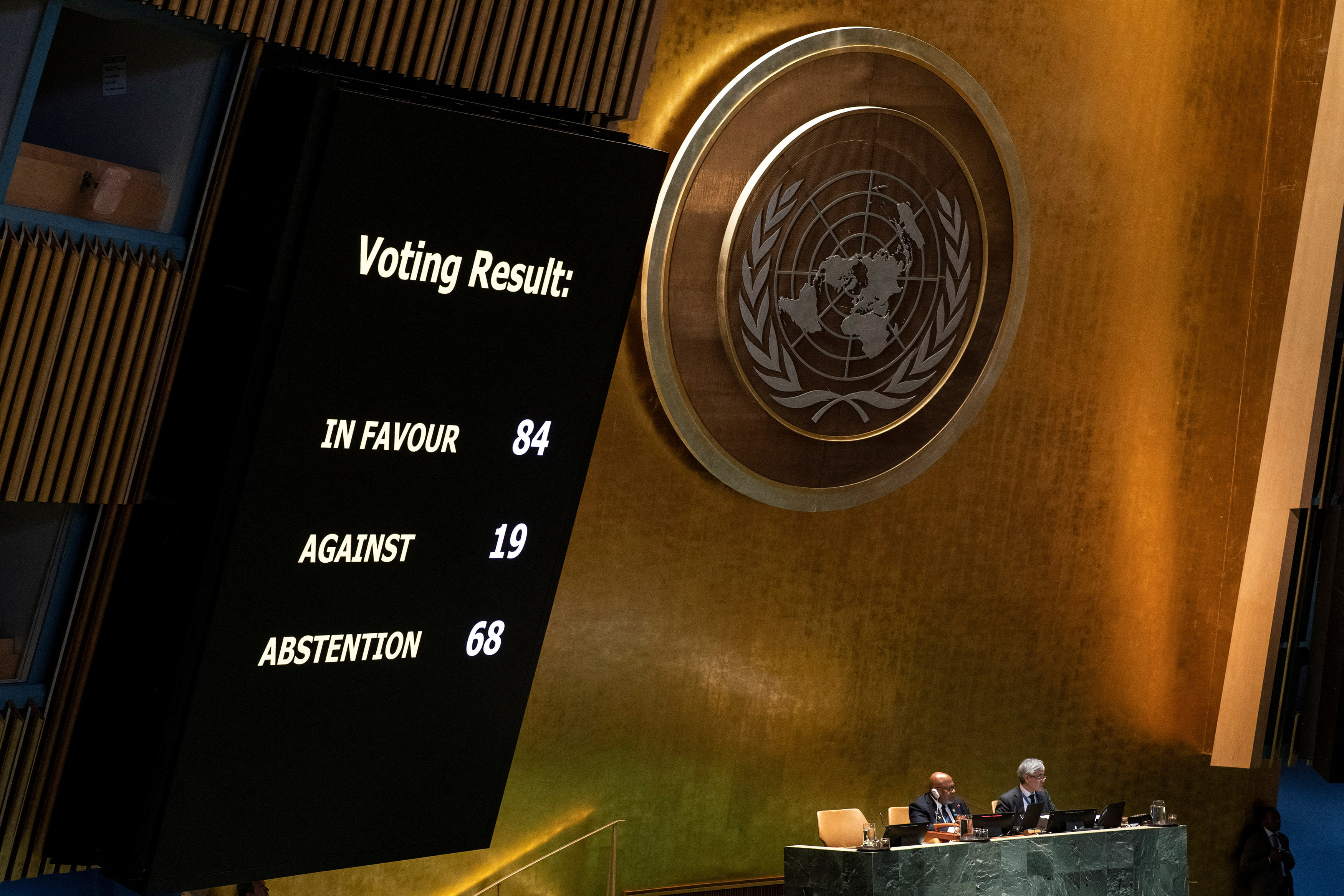
UN General Assembly declares Srebrenica genocide remembrance day

By Michelle Nichols and Daria Sito-Sucic
UNITED NATIONS/SARAJEVO (Reuters) -The United Nations General Assembly declared July 11 an international day of remembrance of the Srebrenica genocide in a vote on Thursday that survivors branded as historic and Serbs as a failure, reflecting deep ethnic divisions in Bosnia.
The massacre of about 8,000 Bosnian Muslim men and boys in 1995, after the U.N. safe zone of Srebrenica was overrun by Bosnian Serb forces, took place during the Balkan wars that followed the disintegration of Yugoslavia and was seen as Europe’s worst atrocity since World War Two.
The resolution, initiated by Germany and Rwanda and the cross-regional core group that included the United States, was approved by a narrow margin of 84 votes in the 193-member General Assembly, with 19 votes against and 68 abstentions.
“The truth and justice won today,” declared Denis Becirovic, the chairman of Bosnia’s tripartite presidency.
The survivors of the massacre, mostly women who lost their male relatives, cried tears of joy at seeing the resolution as final closure after three decades.
The resolution “decides to designate 11 July as the International Day of Reflection and Commemoration of the 1995 Genocide in Srebrenica, to be observed annually”.
It also condemns denial of the massacre and glorification of war criminals, calling for the remaining victims to be found and identified and all perpetrators who are still at large to be brought to justice.
Serbia and Bosnian Serbs, who deny that the massacre constituted genocide, declared the vote a failure, saying that more countries did not vote in favor of the resolution than for it.
They had accused the authors of the resolution of branding Serbia as a “genocidal nation” although it was amended to add that the crime of genocide is individualized and cannot be attributed to any specific group.
“Those people who wanted to stigmatize the Serbian nation failed and will never succeed,” Serbian President Aleksandar Vucic told reporters after the session. “They wanted to put a mark on our face and they failed.”
During the session, Vucic called on member states to vote against the resolution, saying it was “highly politicised” and would not contribute to the reconciliation in Bosnia and the region but rather would open a Pandora’s box.
SERB THREATS OF SECESSION
After the vote, Serbs drove through the Serbian capital of Belgrade, honking and waving Serbian flags.
The streets of towns across Serbia and Bosnia´s Serb Republic were decorated with Serbian flags and placards reading “We are not genocidal people, we remember”.
“This is a failed resolution,” declared Bosnian Serb nationalist leader Milorad Dodik, who threatened that the Serb Republic, an autonomous region that makes up Bosnia along with the Bosniak-Croat federation under a peace deal, would secede if the resolution went ahead.
On July 11, 1995, Bosnian Serb forces commanded by General Ratko Mladic separated men and boys from women and executed them in the following days. Their remains were found years later in mass graves in eastern Bosnia, though some still do not know where their relatives died.
Two international courts have ruled the atrocity constituted genocide. Mladic and his political chief Radovan Karadzic were jailed for life for war crimes, including genocide, while nearly 50 Bosnian Serbs were also convicted.
(Additional reporting by Aleksandar VasovicWriting by Daria Sito-SucicEditing by Frances Kerry and Chizu Nomiyama)




























